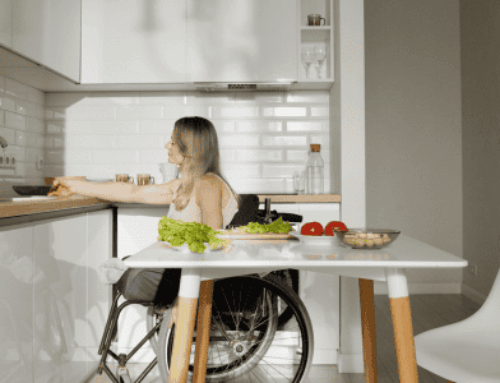
When we think about muscles, we often associate them with big burly men with large biceps and an aesthetically pleasing six pack. However, women have muscles too and they play a bigger role in your body than you might think. Did you know, in addition to strength, muscles also help us with our balance, digesting food and regulating our body temperature? Interesting stuff, right?
Having a healthy amount of muscle is a key factor contributing to our overall health and quality of life. As we age, it becomes harder to build muscle and easier to lose muscle, increasing the challenge of maintaining our muscle mass long term. For women, in particular, building muscle in the first place is quite a challenge, so here are a few tips to help you hold onto your muscle!
1. Check your diet
Eating a varied and balanced diet is important for your health, including your muscle health. Focus your efforts on eating ‘wholefoods’ first. These are foods that undergo minimal processing between the farm and you and include things such as:
- Fruit
- Vegetables
- Legumes
- Nuts and seeds
- Wholegrains
Also try to reduce your intake of highly processed foods, which include foods such as lollies, cakes and potato chips.
You also want to look at your protein intake. Protein is essential for healthy muscles and is the building block for muscle growth and repair, so it plays a big part in preventing us from losing muscle. We recommend aiming for 1.2-1.5 grams of protein per kilogram of body weight per day.
If you’d like further nutrition support checkout the Hub’s Signature Program, a habit building pathway designed to help you eat well for the rest of your life!
2. Use your muscles regularly
To maintain muscle mass, you need to make sure you’re working your muscles regularly. When we don’t work our muscles regularly, our muscles start to shrink and eventually break down. This means you not only lose strength and fitness, but also muscle mass.
Whilst any form of exercise is encouraged, resistance training (weight training) is particularly beneficial for muscles and maintaining muscle mass. It is also good for bone health, which is an added bonus (1)! When exercising, try to challenge yourself. Our bodies are very good at adapting so, if your exercise routine is becoming too easy, it might be time to make some changes (e.g. use weights, increase the number of repetitions or try something new).
Check out our post of the 8 benefits of resistance training.
3. Don’t overdo it
We all know that exercising is important for our health, but it’s important for our muscles that we rest as well!
When you do an intense workout, your muscles can tear or break down. This means your body needs time to recover and rebuild damaged muscles after an exercise (2). Without proper rest, you increase the risk of injury, losing muscle and slowing down your fitness progression. A recovery time of at least 24-48 hours is recommended before training the same muscle group again.
4. Make sure you are getting enough sleep
Don’t underestimate the power of a consistent sleep routine. Sleep is an important period of time that allows our body to build and repair muscle. During sleep, hormones that are important for muscle repair and growth are released into the blood stream and less sleep means less hormones can be released.
Research suggests that not getting enough sleep or not getting good quality sleep on a regular basis may contribute to muscle loss, decreased muscle recovery and decreased muscle growth (3).
A few tips that might help improve your sleep routine include:
- Going to bed and getting up at the same time each day
- Avoiding screen time before bed
- Not eating a heavy meal before bed
- Reducing your daily caffeine intake
5. Aim to be Consistent
Whilst it isn’t realistic to be perfect 100% of the time, it is important to be relatively consistent with your diet, exercise and sleep regime to help maintain a healthy muscle mass. Drastic changes in muscle mass won’t occur overnight so it’s okay to enjoy the occasional treat or to skip a day or two of exercise.
It’s what you’re doing most of the time that’s important.
Want to know how much muscle you have?
If you’d like a precise measure of your muscle come and try the Inbody 570. The Inbody 570 measures and analyses your body, giving you valuable information about what’s happening on the inside– something stepping on the scales can’t tell you! The Inbody570 measures your skeletal muscle mass as well as other valuable components such as water, fat, basal metabolic rate and much more!
If you’d like to book an Inbody Scan, click below!
References
- Westcott WL. Resistance training is medicine: effects of strength training on health. Curr Sport Med Rep. 2012;11(4):209-16.
- Peake JM, Neubauer O, Della Gatta PA, Nosaka K. Muscle damage and inflammation during recovery from exercise. J Appl Physiol. 2016;122(3):559-70.
- Mônico-Neto M, Antunes HKM, Dattilo M, Medeiros A, Souza HSd, Lee KS, et al. Resistance exercise: a non-pharmacological strategy to minimize or reverse sleep deprivation-induced muscle atrophy. Med Hypotheses. 2013;80(6):701-5.



